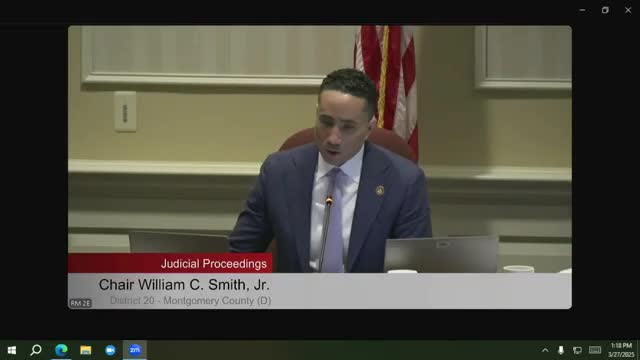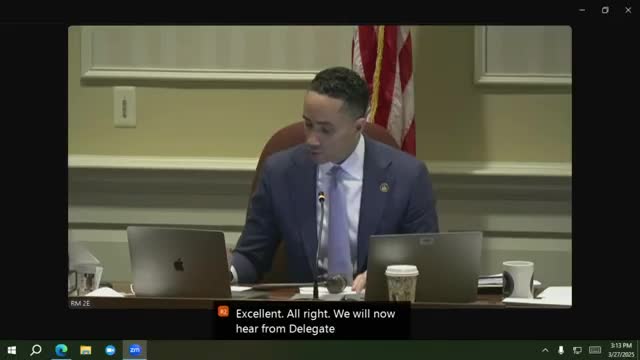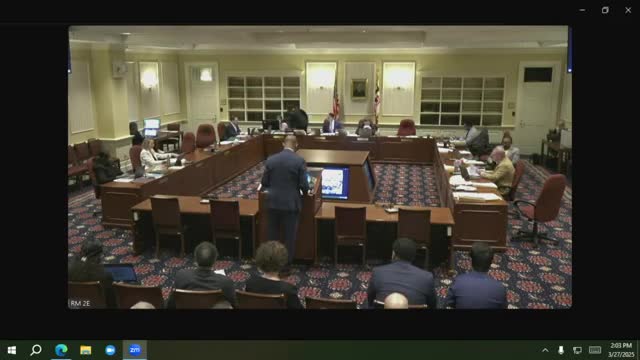Article not found
This article is no longer available. But don't worry—we've gathered other articles that discuss the same topic.

Bill to clarify public disclosure of child-fatality records under CAPTA draws support for transparency

Committee reviews two measures aimed at out-of-state vehicle registration and automated-enforcement data

Committee hears call to license community association managers amid concerns about theft and oversight

Committee hears sharp debate over bill to end local 287(g) immigration agreements in Maryland

